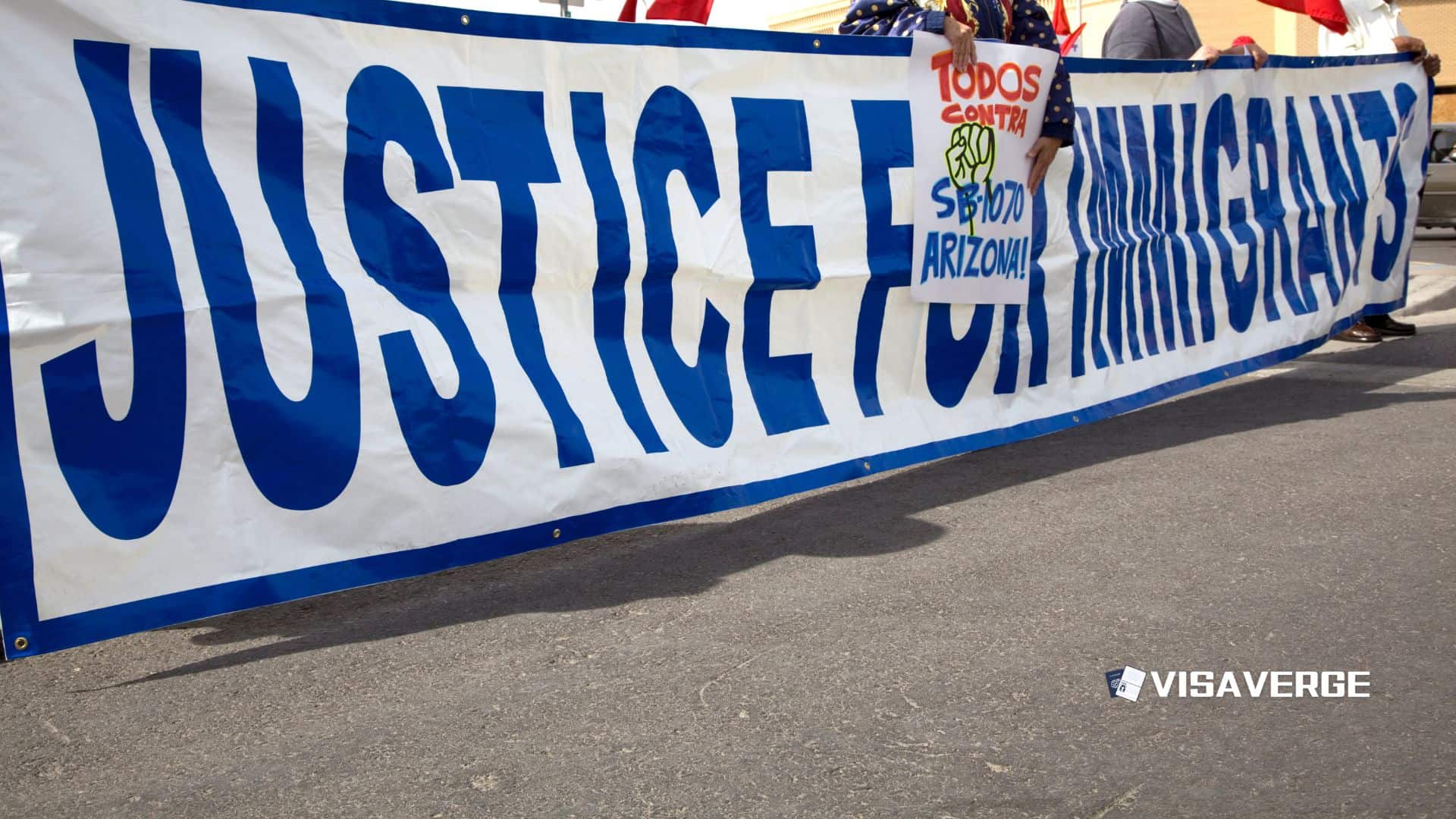(LOUISIANA, USA) On September 5, 2025, a group of 14 West African migrants was put in shackles, placed on a military cargo plane in Louisiana, and flown thousands of miles away to Ghana, a country that is not home for most of them. The flight marked the first known use of a controversial U.S.-Ghana Deportation Agreement, part of what advocates now call “Return to Nowhere” — a practice where the United States 🇺🇸 deports African migrants to Ghana 🇬🇭 even when they are citizens of other West African countries.
Many had lived in the U.S. for years and suddenly found themselves left in a place they barely know, with no clear legal status and no idea what would happen next.

Who was on the first flight and how this grew
The deportees on that first flight included Nigerians, Liberians, Togolese, Gambians, Malians, and others pushed out under this third-country deal. By mid‑October 2025, the number of people sent from the U.S. to Ghana under this arrangement had grown to at least 42, with more groups arriving afterward.
Advocates say this growing pipeline shows the agreement is not a one-off experiment but an expanding system that treats Ghana as a kind of holding zone for unwanted migrants from across West Africa.
Quick summary of known numbers
| Date / Period | Known number of people sent |
|---|---|
| September 5, 2025 (first flight) | 14 |
| By mid‑October 2025 | At least 42 |
| By November 2025 (moved to undisclosed locations) | At least 19 |
Background and legal framework
According to analysis by VisaVerge.com, the U.S. began using the U.S.-Ghana Deportation Agreement under the Trump administration, and it has continued under later governments. That continuity raises sharp questions about U.S. deportation policy across administrations.
The agreement allows the U.S. to remove people to Ghana even when they hold no Ghanaian citizenship and have very weak or no ties to the country. For many deportees, the process begins with surprise; numerous accounts say they received little or no prior notice, learning only at the last moment they were being sent not to their own countries but to Ghana.
Conditions during transport and after arrival
Conditions during and after removal have drawn strong criticism.
- The first group from Louisiana was transported in harsh conditions, restrained with shackles and flown on military aircraft usually used for troops and equipment.
- Upon arrival, many were not released into communities. Instead, several were taken to Bundase Military Camp and other secure sites in Ghana, where they were kept under tight control.
- Reports describe poor living conditions, limited access to lawyers, and almost no information about rights or future prospects.
- Some deportees were moved from one camp to another with no explanation, increasing fear and confusion.
onward expulsions and risks
The problems did not stop in Ghana. In several cases, Ghanaian authorities later expelled deportees onward to another country — often the person’s actual country of origin.
- Some were driven to border areas (for example, the frontier with Togo) and handed a small amount of money — around $100 — then left to fend for themselves.
- Many had left home years earlier and had no family waiting, no safe housing, and in some cases faced renewed threats or persecution back in the countries they originally fled.
Human rights groups argue this chain of removals turns Ghana into a transit point for forced returns, potentially placing people in direct danger and undermining protections intended to prevent refoulement.
Legal and human rights concerns
Ghanaian lawyers and advocacy groups have filed challenges in domestic courts, arguing that the country’s role in the agreement violates both the Ghanaian constitution and international law.
They emphasize the principle of non‑refoulement, which forbids sending people to places where they face a real risk of torture, persecution, or other serious harm. Critics contend that when Ghana accepts non‑citizens from the U.S. and then sends them on without proper review, it helps create exactly the kind of risk non‑refoulement is meant to prevent.
“When Ghana accepts non‑citizens from the U.S. and then sends them on without proper review, it risks directly violating non‑refoulement protections,” human rights advocates say.
U.S. government response vs. advocates
U.S. officials have taken a different view. The U.S. Department of Justice has argued in court that Washington cannot control what Ghana does with deportees once they leave American soil. In this framing, the United States is simply removing people who have no legal right to stay in the U.S.; what happens afterward is Ghana’s responsibility.
Advocates counter that U.S. authorities are well aware of what happens in Ghana and beyond. They argue that continuing to send people under the agreement makes the United States part of the problem, not merely a bystander. The gap between these positions has made the U.S.-Ghana Deportation Agreement one of the most contested examples of third‑country deportation policy in recent years.
Ghana’s official framing and deportees’ lived experience
Ghana’s government has attempted to frame its role in more positive terms, describing acceptance of deportees as an act of “pan‑African solidarity” and humanitarian duty.
However, for many people affected, that message clashes with reality:
- Long periods in military camps
- Heavy stigma from local communities
- Constant threat of being moved again with little or no warning
- Families split across continents, with spouses and children left behind in the U.S. or other African countries
These conditions prevent reunification and make planning any future extremely difficult.
Secrecy, movement to undisclosed locations, and psychological harm
By November 2025, the situation grew even more worrying. At least 19 deportees were moved from known facilities in Ghana to undisclosed locations inside the country. Lawyers and family members say they lost contact and fear some may have been pushed across borders again.
The secrecy around these movements has amplified concerns about:
- Abuse and lack of due process
- Possible violations of Ghanaian and international law
- Severe psychological strain, including reported suicide attempts tied to the shock of forced removal and fear of further deportation
Ongoing legal process and political debate in Ghana
The political debate within Ghana continues. Members of Parliament, civil society organizations, and legal experts have pressed for greater transparency about the terms of the agreement with the U.S. and clarity on the fate of those already sent.
A major human rights case challenging the deportation arrangement reached the Ghanaian Supreme Court, which has adjourned proceedings until late November 2025. The delay leaves deportees in limbo, stuck in a system that might be declared unlawful but continues operating in the meantime.
Implications for migrants in the U.S.
For migrants still in the U.S. from Nigeria, Liberia, Togo, Gambia, Mali, and other West African states, the Return to Nowhere model adds another layer of fear to an already harsh deportation regime.
- Removal may not mean returning directly to the country they left.
- Deportation can involve being routed to Ghana first, then possibly pushed onward again.
Some basic details about U.S. removal procedures are available from U.S. Immigration and Customs Enforcement: https://www.ice.gov/removal.
Advocates warn that without clearer rules and stronger protections, third‑country deportation agreements like the U.S.-Ghana deal risk turning already vulnerable people into permanent exiles — moved from place to place but never truly allowed to belong anywhere.
Key takeaway: Without transparency, legal safeguards, and adherence to non‑refoulement obligations, third‑country deportation arrangements risk creating cycles of displacement that leave people exposed to danger and deny them basic rights.
This Article in a Nutshell
On September 5, 2025, 14 West African migrants were deported from Louisiana to Ghana under a controversial U.S.-Ghana Deportation Agreement. The program, branded “Return to Nowhere,” expanded to at least 42 deportations by mid‑October, with reports of shackling, military transport, detention in camps like Bundase, poor conditions, and limited legal access. Ghanaian lawyers and human rights groups challenge the practice under constitutional and international non‑refoulement obligations. U.S. officials argue they cannot control Ghana’s post‑arrival actions, while advocates call for transparency and legal safeguards.













